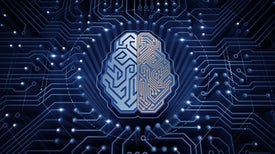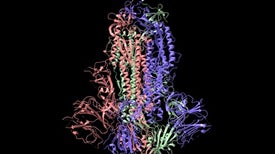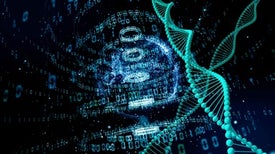
Lack of Sleep Could Be a Problem for AIs
Some types of artificial intelligence could start to hallucinate if they don’t get enough rest, just as humans do

Some types of artificial intelligence could start to hallucinate if they don’t get enough rest, just as humans do

Replication problems plague the field of AI, and the goal of general intelligence remains as elusive as ever

Deep-learning robot Shimon writes and rhymes in real time

Google’s deep-learning program for determining the 3-D shapes of proteins stands to transform biology, scientists say

Our willingness to share content without thinking is exploited to spread disinformation

High-precision metrology based on the peculiarities of the subatomic world

Beyond virtual and augmented reality

Replacing humans with digital simulations could make clinical trials faster and safer

Algorithms that can recognize people are too often biased or inaccurate—and they can easily invade our privacy

A technology called “fully homomorphic encryption” is so secure that even future quantum computers won’t be able to crack it

Election officials also rely on high-speed scanners, envelope openers and good old-fashioned paper

Much like spoken language, Internet memes take on shifting political meanings according to context

Instead of shutting down whole cities, we can use big data to take a more targeted approach

Until programmers recognize their own internal biases, the software they create will be problematic

What 1990s Internet protest movements share with today’s disinformation campaigns

As faith in government hits historic lows, organizers in the U.K. are trying a new math-based approach to democracy. Would it work in the bitterly divided U.S?

A new budget-friendly virtual-reality system helps researchers study the brains of small animals

Artificial intelligence still needs to bridge the “sim-to-real” gap. Deep-learning techniques that are all the rage in AI log superlative performances in mastering cerebral games, including chess and Go, both of which can be played on a computer...

Many vital public institutions such as hospitals and fire stations lack cybersecurity to ward off popular malware

A familiar concept from chaos theory turns out to work differently in the quantum world
Support science journalism.

Thanks for reading Scientific American. Knowledge awaits.
Already a subscriber? Sign in.
Thanks for reading Scientific American. Create your free account or Sign in to continue.
Create Account